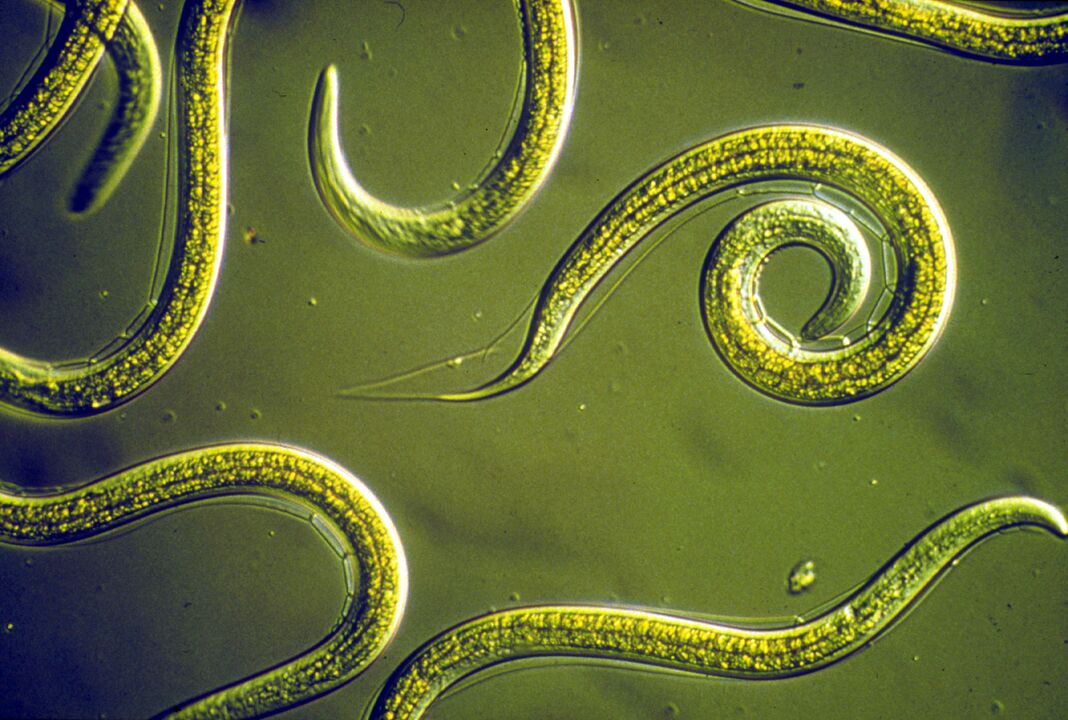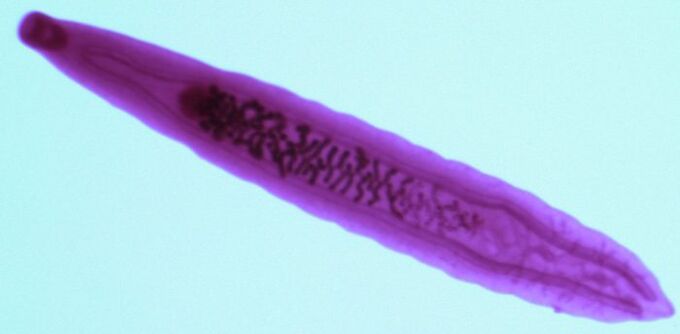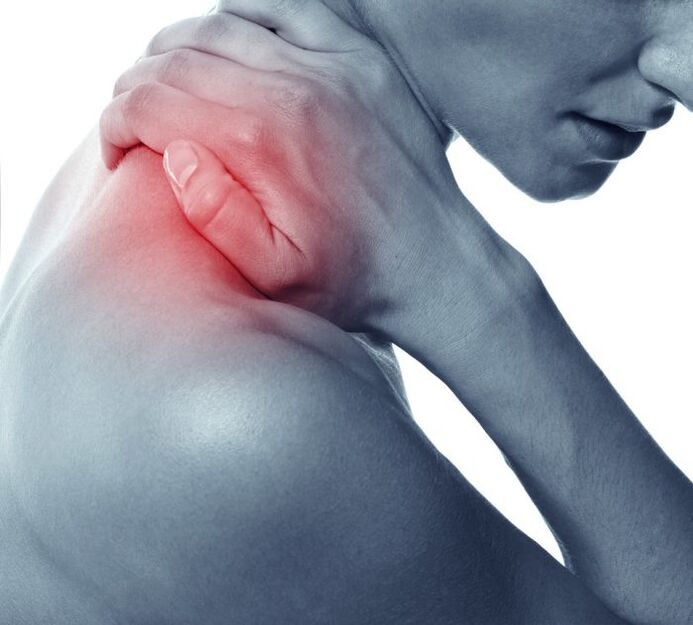Anyone can experience a worm infestation. Toddlers - kindergarten, adults - for other reasons. Despite all the precautions, you need to know the signs of worms in humans in order to notice the disease in time and start its treatment. What are worms, where do they settle and how do they manifest - we will look in more detail.
What organs can be infected by worms?

There are two types of invasions: abdominal and tissue. Depending on the species, habitats are also divided into:
- The cavity worms settle in the small and large intestine. In particular, the first parts of the small intestine are affected by a wide band, hookworm, roundworm. The lower part of the small intestine is the habitat of the dwarf tapeworm, the pinworm. The large intestine often becomes the habitat of the whip.
- Tissue helminths affect organs of all types: liver, brain, lymph nodes, bile ducts.
Great! It is impossible to identify the signs of the presence of worms in a patient in the early stages of the development of an invasion. While the number of worms is small, the toxic poisoning with waste is within the normal range, the body itself is dealing with the invasion. The appearance of characteristic or acute symptoms indicates a significant increase in the number of helminth infestations: the maturation of individuals and their dynamic development.
Types of chains

When defining the signs of worms in adults, you need to understand what kind of invasion we are talking about:
- Vlasoglavy. The chains were named for the filamentous body with thickening at the hind end. The life cycle of parasites is immediate. Habitat - tropical, subtropical. The chains are located in the cecum, so they are difficult to trace.
- Nematode. A subset of roundworms that live in nature and in the human body. The most famous representatives: round worms, pinworms.
- Unexpected succes. Flat seals. They pose a huge threat to the body of the player, as they are able to be installed in any instrument, system. Representatives: schistosomiasis, regression worms.
- Pork ribbon (ribbon). The films are hermaphroditic. Having strong hooks on the head for attachment to the walls, they can affect the brain, intestines, liver, eyes, muscles. Consequences of non-treatment: paralysis, death of the carrier.
All kinds of worms are found in the human body. Having become ill from ascariasis, enterobiasis, bifurcation, the patient experiences a lack of nutrients, the intestines cease to normally absorb food debris. Consequences of invasion: metabolic disorders, neurochemical reaction.
Some information about the ways of infection:
- Ascariasis - unwashed vegetables, fruits, hands.
- Raw or lightly salted fish, caviar - bifurcation.
- Pinworms - contact-home method. The growth period is up to 60 days, after which there is a chronic phase of invasion, characterized by reduced immunity and high incidence of infectious diseases, exacerbations of chronic processes.
Worm marks on humans
The general symptoms of worms in adults depend on the location of the helminths. The main danger is the parasites that settle on vital organs. Worms appeared, the symptoms are silent: weakness, cough. And although for a complete diagnosis, examination is necessary. However, there are some signs by which you can determine: where the worms are and if they are present at all.
Brain

Most of the time, there are no obvious symptoms, but if the worms live in the human brain, the patient may experience:
- persistent nausea attacks.
- frequent vomiting;
- severe weakness;
- lethargy of consciousness;
- reduced visual acuity, hearing.
- fluctuations in body temperature for no apparent reason.
- epilepsy.
Fact! Most often, parasites in the brain are detected only after autopsy.
On the body

Hundreds of known types of parasites can be installed in a patient's body. It is difficult to determine the presence of worms in an adult's body. Symptoms vary depending on the location: in the heart, liver, lungs, under the skin. Common signs of worms in an adult:
- muscles, joint pain;
- skin deterioration;
- weight jumps: reduction or adjustment.
- severe constant fatigue;
- immediate reduction of immunity.
Fact! Some worms have the ability to crawl from the anus to the perineum, penetrate the bloodstream into other organs, appear in the abdominal cavity, and affect the nose and ears.
In the intestines

The most common worms in humans, whose symptoms are more severe, can be in the large and small intestine. Infection occurs through the mouth, by contact. The developmental period of the larva and the adult from the egg takes place in the intestinal mucosa. The parasite takes in nutrients on its own, preventing them from being absorbed by the intestines. Because of this, there are intestinal problems that cause helminths in adults. Symptoms:
- the stomach is often swollen.
- the stool is broken;
- flatulence occurs.
- weight changes;
- constantly and intensely want to eat.
Of course, with worms, the symptoms can be different, overgrown with characteristic signs of gastric disease, if the patient has any. That's why the right diagnostic measures are so important. Only a specialist will determine exactly: where the worm is located, the type and dynamics of the invasion development.
Signs of helminthiasis depending on the type of parasite
The symptoms of worms in an adult may differ from the symptoms of childhood. Strong immunity repels the invasion, but the child does not have such a characteristic. Knowing the signs of the presence of worms in a person, it is easier to understand the cause of the disease and at the first suspicion of infection, consult a doctor. An infectious disease specialist, parasitologist, helminthologist - a specialist of the required profile will quickly understand where the worms live in the human body and how to get rid of them.
Each parasite causes its own symptoms:
- from the film there are intestinal problems: loss of appetite, sleep disturbance, flatulence.
- from round - cough, bloating, gas formation, loss of appetite.
Great! Round or roundworms grow up to 40 cm in length and are able to move easily along the walls of the intestine, living in the lungs and liver. This is a very dangerous invasion that must be rejected.
Whether the strips or roundworms are installed in the human body, they must be removed. Even in small amounts, the invasion can cause serious damage to the body and in large mass, the parasites poison the host and often lead to the death of the patient. Knowing where the worms live, do not rush to delete the frequent bloating for common indigestion, maybe this is a sign of helminthiasis, which means it's time to see a doctor.








































